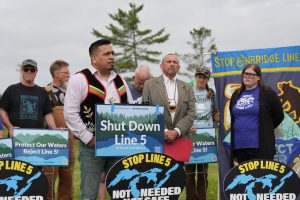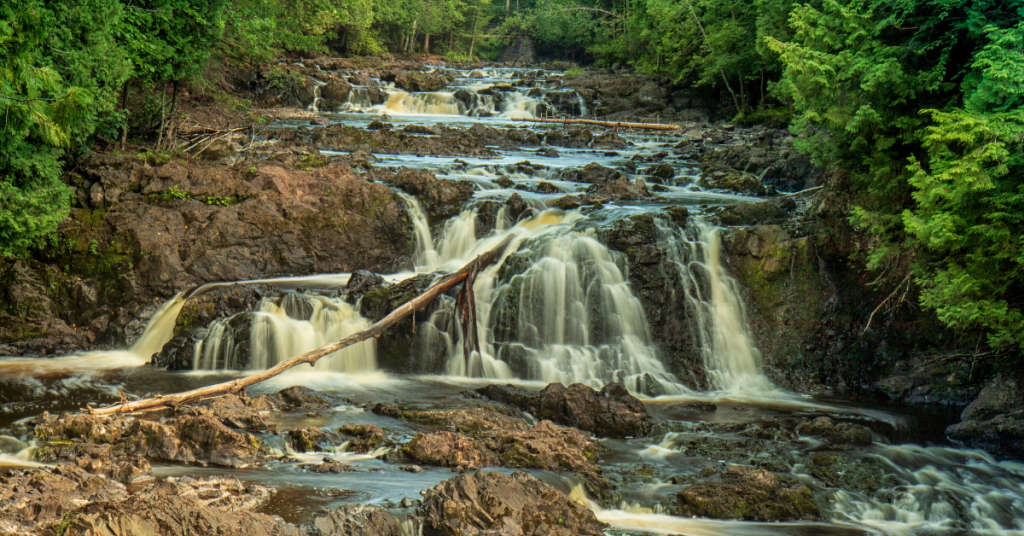In northern Wisconsin, where the Bad River flows through the largest wild rice beds in the Great Lakes basin, a legal battle is looming. The outcome may decide the fate of a dangerous oil pipeline and the health of a fragile watershed.
Later this summer, a contested case hearing will be held over Enbridge Energy’s controversial Line 5 oil pipeline. A contested case hearing is a formal legal proceeding in which an administrative law judge reviews evidence and testimony to determine whether a state agency, in this case, the Wisconsin DNR, properly followed state laws when issuing permits.
The administrative law judge will decide whether the Canadian oil giant should be allowed to build a new 41-mile section of pipeline through hundreds of acres of wetlands and across dozens of waterways in northern Wisconsin. All to keep its aging oil pipeline in operation. Line 5 has already leaked more than a million gallons of oil in its lifetime and is currently trespassing on the sovereign land of the Bad River Band of Lake Superior Chippewa.
Line 5 was built in 1953 and was never designed to operate this long. Today, it pumps crude oil and natural gas liquids from western Canada to eastern refineries, cutting directly across Wisconsin, under the Straits of Mackinac, and through Tribal and treaty-protected lands.
The pipeline’s track record is alarming. It has leaked dozens of times, threatening fisheries, wetlands, and Lake Superior itself. In 2019, erosion from a major flood exposed the pipeline on the Bad River Reservation. The tribe, concerned by the risks to their land, water, and cultural traditions, sued. In 2022, a federal judge ruled that Enbridge was in fact trespassing on tribal land. But the company has refused to shut the pipeline down.
Instead, Enbridge is proposing to reroute the pipeline around the Bad River reservation. But this plan would cut a new path through sensitive ecosystems, cross nearly 200 waterways, and disturb high-quality wetlands that provide critical ecological functions. While the hearing considers whether the project meets the standards that protect Wisconsin’s waterways and wetlands, it also represents a broader test: will we uphold and equally apply those protections to projects proposed by powerful fossil fuel interests?

Clean Wisconsin and our partners will demonstrate that the project poses significant risks to our natural resources and does not meet the legal threshold for approval.
Enbridge and its supporters have tried to cast Line 5 as “vital” to the Midwestern economy. But independent studies have shown that shutting down Line 5 would have minimal impact on fuel availability and prices in Wisconsin. Most of what flows through the pipeline doesn’t actually stay here in Wisconsin. What’s truly vital are the resources being threatened by Line 5: clean water, healthy ecosystems, and a climate-stable future.
Clean Wisconsin has been fighting Line 5 for years through legal action, public engagement, and scientific review. We’ll be at the hearing this summer to make the case, once again, that our environmental standards must be upheld. You can learn more about our work to stop Line 5 and support our case by visiting cleanwisconsin.org/line5

